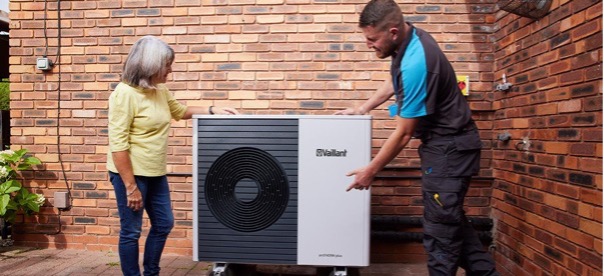In light of the government’s ambitious net-zero strategy, Harding Heating has conducted research to gauge the progress of heat pump implementation, considering its pivotal role in the Department of Energy’s plans. The findings shed light on the demographics of heat pump adopters, their satisfaction levels, barriers to the government’s goals, and potential areas for improvement.
The study reveals that heat pumps are predominantly being installed by affluent households residing in rural areas. The wealthiest 30% of the population are ten times more likely to embrace heat pump technology compared to the least affluent third. Furthermore, an overwhelming three-quarters (74%) of heat pump users reside in rural locations. Interestingly, those opting for heat pumps tend to have larger homes, with an average of four bedrooms, in contrast to those choosing gas boilers, who typically have homes with three bedrooms. Notably, individuals installing heat pumps commonly reside in houses built before 1900 or after 2012, while the majority of gas boiler installations occur in houses constructed between 1950 and 1975.
While heat pumps exhibit high satisfaction levels (89%) for heating water, their effectiveness in heating spaces garners lower satisfaction ratings (56%). This disparity is reflected in the fact that more than two-thirds of heat pump users rely on a secondary heat source, with wood stoves accounting for half of these secondary sources, and gas boilers comprising a third.
Encouragingly, nearly three-quarters (73%) of respondents reported greater satisfaction with heat pumps compared to their previous heating systems. However, intriguingly, heat pump users were less likely to recommend heat pumps to their friends compared to those who opted for gas boilers, with a net promoter score (NPS) of 18 for heat pumps compared to 21 for gas.
An area of speculation revolves around the impact of heat pumps on energy bills. The study reveals that heat pumps are unlikely to result in substantial energy bill reductions, with 66% of users expressing satisfaction with their running costs, compared to almost 60% satisfaction for gas boilers, despite the inflated gas prices in 2022. Thus, while heat pumps contribute to lower household emissions, financial savings are less pronounced.
Electrifying household heating presents a formidable challenge as part of the government’s commitment to achieving net zero by 2050. To reach this goal, the number of annual heat pump installations needs to increase twentyfold, from the current 30,000 to 600,000 by 2028. The study underscores the necessity of a significantly larger workforce, with 27,000 new installers required, compared to the mere 3,000 in 2022. In line with the trend of heat pump installations in rural areas, the concentration of accredited installers is also highest in such locations. Notably, Shropshire and Staffordshire stand out, with approximately three installers per 100,000 residents, ranking among the top ten regions in the UK.
Surprisingly, energy companies have been relatively slow to adopt heat pumps, with only 4% of installations attributed to them, compared to a fifth of gas boilers. This discrepancy raises questions about the potential influence of preserving gas sales on the part of energy giants.
Will the government rise to the challenge?
In their endeavor to achieve their targets, the government has implemented a comprehensive approach. The Strategic Innovation Fund (SIF), a £450 million initiative, aims to position the UK as an energy-focused “Silicon Valley” by supporting heat pumps and other energy-related innovations. Additionally, the Boiler
Upgrade Scheme offers grants of £5,000 towards heat pump installation to incentivise households to make the switch. However, it is important to note that households typically need to cover an additional £5,000, rendering heat pumps twice as expensive as the average gas boiler.
In a combination of incentives and penalties, the government plans to introduce a £5,000 fine for boiler manufacturers for each missed heat pump target starting in 2024. This measure has been met with resistance from manufacturers, who threaten to pass on the costs to customers and reduce investments in the UK.
Andrew Harding, Managing Director of Harding Heating, commented on the findings, saying, “While we appreciate the government’s efforts to transition to electrified household heating, we believe they need to go further. Currently, only the affluent can afford to install heat pumps, and we advocate for higher subsidies for lower-income households to make heat pumps as affordable as, or ideally less expensive than, gas boilers. Additionally, addressing the shortage of installers should be a pressing concern for the government. Grants aimed at funding installer qualifications can be part of the solution.”
Harding emphasised the importance of collective efforts in achieving the net-zero objective, urging the British public to embrace heat pumps and contribute to the nation’s fight against climate change.
For a comprehensive overview of the research conducted by Harding Heating, please visit their website at: https://www.hardingheating.co.uk/post/heat-pump-research

